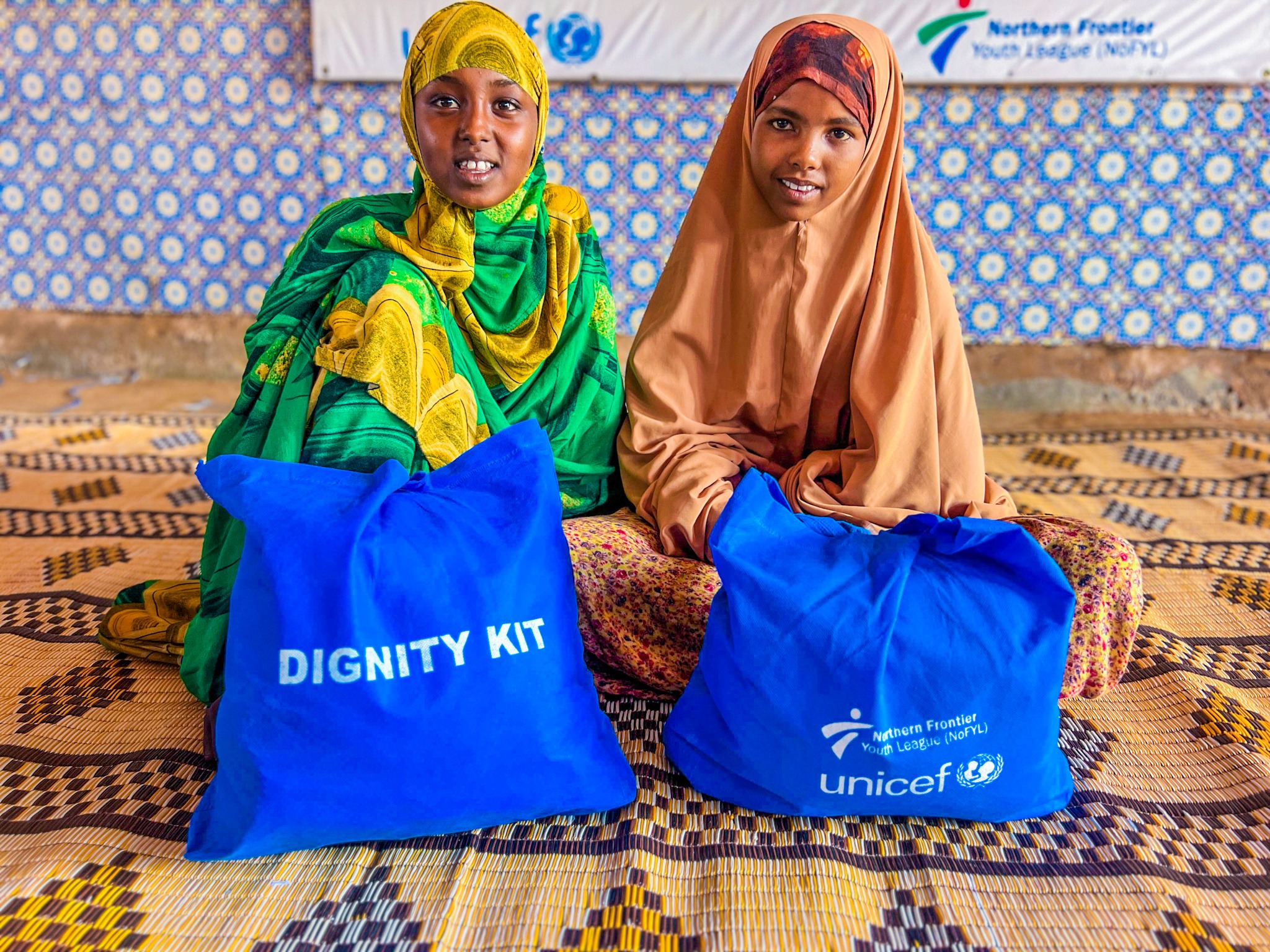When fighting erupted near her home in Belet-Xaawo, 16-year-old Garmamo fled with her mother and younger siblings. They arrived in Qansaxley camp, Dollow, with nothing but the clothes on their backs.
For Garmamo, displacement was not only about losing her home but was about losing her dignity. The single dress she escaped in soon became dirty and smelly, and she felt too ashamed to leave the small shelter where her family stayed during the displacement.
“I used to sit inside the whole day because I felt people would look at me,” she recalls softly. “I was afraid, especially when I got my period. I couldn’t join the awareness sessions in the camp or even fetch water.”
In August 2025, Garmamo’s situation changed when she was among hundreds of displaced women and girls who received dignity kits distributed by Northern Frontier Youth League (NoFYL), with support from UNICEF. The kits, containing Somali dresses (Dirac), shawls, sanitary pads, women underwear, bathing soaps, petticoats, headscarves and powder soaps, became more than just supplies; they were a lifeline.
“The kit came at the right time. Now I can wash, I can dress properly, and I feel free to walk outside,” Garmamo says with a smile. “I no longer feel ashamed.”
For Garmamo’s mother, the dignity kit eased a heavy burden. With no steady income and barely enough food for her family, she says she constantly worried about her daughter’s well-being.
“It is a big relief,” her mother explains. “Someone thought about our needs as women. It means so much when you have nothing.”
In August, a total of 310 dignity kits were distributed across three project locations in Gedo Region: Bardheere (105), Doolow (100), and Belet-Xaawo (105).
Garmamo’s story reflects the wider impact of dignity kits on displaced women and girls. They go beyond hygiene: restoring confidence, reducing stigma, and giving hope at the most difficult of times.







